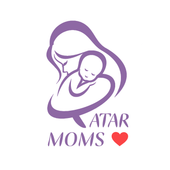How to deal with a newborn? This question often revolves in the minds of mothers, especially those who live the experience of motherhood for the first time, because the infant needs more attention than the other upcoming stages, because the infants live a number of changes around them, such as not getting used to the surrounding conditions and pushing him to express his fear by crying, And lack of sleep and other things that the mother must recognize and try to deal with in the right ways, which we will talk about in the following lines to contain her infant and live a healthy and safe life.
What Is The Newborn Baby Care Basics?
1. Lactation (food)
Breastfeeding
Breastfeeding is the best way to nourish infants and provides many benefits to both the baby and the mother. Below we review the importance of breastfeeding:
- Providing optimal feeding: Breast milk contains a unique and ideal combination of nutrients that the infant needs for its healthy growth and development. Natural milk contains proteins, fats, carbohydrates, vitamins and minerals that promote a healthy immune system and help in the development of the baby's digestive system.
- Protection from diseases: Natural milk contains natural antibiotics and anti-inflammatory and antiviral components, and thus helps protect the child from many infectious diseases such as respiratory infections, diarrhea, middle ear infections and allergies.
- Enhancing emotional bonding: Breastfeeding contributes to strengthening the emotional bond between mother and child. The mother is directly involved in providing nourishment, warmth and tenderness to the child, and this enhances trust and comfort and helps develop a strong emotional relationship between them.
- Health benefits for the mother: Breastfeeding offers important health benefits for the mother as well. Breastfeeding helps reduce postpartum bleeding, promotes uterine contractions, and helps restore the mother's normal weight.
Formula Feeding
Formula feeding or artificial feeding is an important alternative to breastfeeding in some cases. Below we review the importance of artificial feeding for the child and the mother:- Providing adequate feeding: Formula milk provides optimal and balanced nutrition for a child who cannot eat natural milk. Formula milk is manufactured to contain the essential nutrients a child needs for healthy growth and proper development.
- Convenience and flexibility: Artificial feeding provides flexibility to the mother and allows her to feed the child at specific times, in specific quantities, and in a manner commensurate with the family's needs and special circumstances. Formula feeding also provides overall comfort to the mother and allows her to share care with others.
- Solve health problems: Some babies and some mothers may experience difficulties in breastfeeding due to health problems such as nipple obstruction or lack of milk production. In these cases, formula milk can be the perfect alternative to meet the needs of the baby and ensure that he gets the necessary nutrition.
- Empowering working mothers: For working mothers, artificial feeding may be an appropriate alternative as it allows them to return to work and balance their career and child care.
2. Changing Diapers
Choosing the type of diaper that is most suitable for your baby’s skin is very important, because it may cause allergies, irritation, redness, or abrasions, especially in the first postpartum period, in addition to diaper ointment, wipes, warm water, and all other supplies that you may need so as not to leave your child alone and not be exposed to sudden colds. .
3. Regulate BedTime
The hours of sleep abound in the first period of the infant because he has not yet adapted to the new environment in which he lives, so you can regulate his sleep hours to avoid fatigue and exhaustion resulting from this fluctuation, as the number of his sleep hours ranges from 6-12 hours. You can stimulate this by using dim lighting and making times Bathe him during the evening period and breastfeed him enough to burp him so that he can sleep peacefully without feeling colic or having bloating.
4. Child Health
- The mother should monitor the weight of her child and his health in general by conducting a comprehensive examination of his health and blood strength periodically to ensure that he is growing properly and exposing him to the sun constantly.
- Doing a daily infant massage in the morning to help him develop neurologically and adopt it in the form of a routine
- Clean the umbilical cord well using sterile sanitary tools Commitment to give your infant vaccinations: Paying attention to giving the child vaccinations at regular appointments is very important to protect him from exposure to various diseases in health centers accredited in your place of residence
5. Infant Hygiene
Bathing
- The baby should be bathed gently and carefully. It's best to use warm water and gentle bath products made for babies. Gently dry the child and choose a suitable moisturizer on his skin to prevent dryness.
- Use a bath towel suitable for his skin
- The mother should choose comfortable, soft-touch clothes for the child's skin and suit the environmental conditions surrounding him to maintain a regular body temperature.
Taking care of a newborn baby is based mainly on everything that we talked about in our article that is in your hands. You can buy all the necessities for your baby from the Qatar Moms store, including bath & baby care products, baby feeding products, and everything that a mother needs during pregnancy and the postpartum period.
 FREE DELIVERY FOR ORDERS ABOVE 100 QAR
FREE DELIVERY FOR ORDERS ABOVE 100 QAR DELIVERY WITHIN 3 HOURS
DELIVERY WITHIN 3 HOURS APPLE PAY AND CARD PAYMENT AVAILABLE
APPLE PAY AND CARD PAYMENT AVAILABLE



